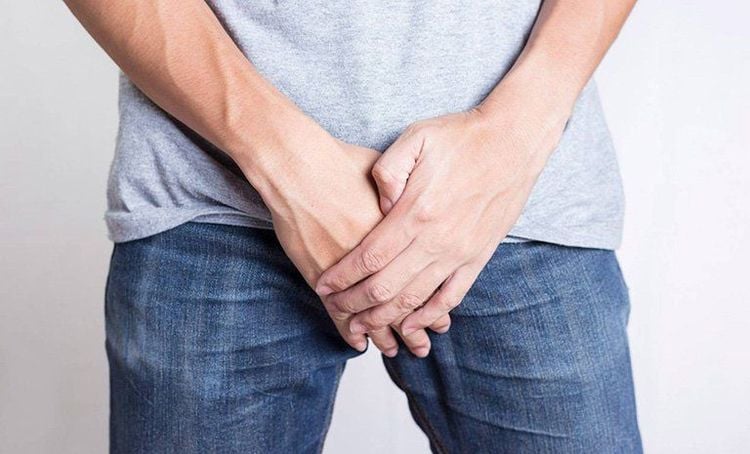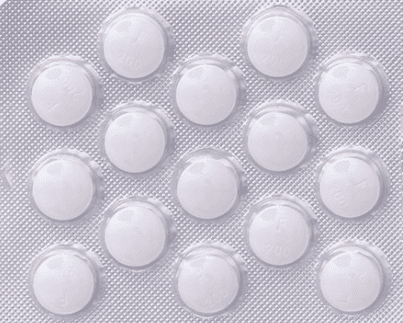This is an automatically translated article.
The article is professionally consulted by Master, Doctor Vo Thien Ngon - Department of General Surgery - Vinmec Da Nang International General Hospital
Difficulty urinating not only causes discomfort, makes the patient uncomfortable, lower abdominal pain, but also can cause infection for a long time, leading to many dangerous complications.
1. What is dysuria?
Difficulty urinating is a condition in which you have to strain to urinate and take a long time to pass urine. Patients often have to go to the toilet for a long time, feeling uncomfortable when urinating. Moreover, people with difficulty urinating often feel the need to urinate, on average, about 15-30 will feel the urge to urinate once. Difficulty urinating can lead to the following cases:
Incontinence: is a condition in which you have just finished urinating but there is no feeling of lightness in the abdomen, the lower abdomen is still heavy and painful Frequent urination: frequent urge to urinate Urine stream weak, small, urine falls on the legs, it's hard to pass urine, urine is sharp, pain when urinating
2. Causes of difficulty urinating

Normally the bladder, bladder neck, urethral canal and urinary opening will work in harmony to help excrete urine from the body. The urethral canal is clear, the bladder contracts rhythmically, and the bladder neck is well dilated, which will help the urination activity take place stably. When one of these organs is abnormal, it will affect the process of urinating, leading to difficulty urinating. In other words, the cause of difficulty urinating comes from the above organs:
The bladder does not contract well: common in patients with spinal cord injury, bladder paralysis, people with cerebrovascular accident and diabetic patients. The bladder neck does not dilate well: due to bladder neck stenosis, bladder neck fibrosis In which, the common cause of bladder neck stenosis is prostate enlargement, which often occurs in older men. The prostate gland is located at the base of the bladder, measuring about 4x3cm, about 2.5cm thick and weighing 20 grams. The prostate gland is responsible for the production of mucus, which aids in the production of semen. About 45 - 70% of elderly men in Vietnam have an enlarged prostate gland. The prostate gland is located deep inside the bladder, surrounding the bladder neck. When urine flows out, it passes through the prostate gland. The prostate gland enlarges as a man ages, the larger the size will obstruct the flow of urine, leading to difficulty urinating.
Urethral obstruction: due to urethral stones or urethral stricture
3. Diagnosing dysuria
There are many causes of difficulty urinating, so when having symptoms of dysuria mentioned above, the patient should see a doctor as soon as possible. Doctors will perform tests, check and diagnose diseases such as:
Ultrasound check the size of the prostate gland, determine whether the kidneys have fluid retention or not. Rectal ultrasound will help determine the exact size of the prostate gland, which can be combined with prostate biopsy in cases of suspected cancer. Blood test for PSA. If the amount of PSA in the blood is high, then prostate cancer is suspected. X-ray to determine the cause of urinary tract stones. In addition, CT or MRI can be taken for more accurate results. Blood test for PSA (specific expression of the prostate gland), when the amount of PSA in the blood is high, cancer is suspected. Prostate . X-ray to find the cause of urinary tract stones, it is necessary to take CT, MRI to diagnose the cause more accurately.

4. Treatment of dysuria
Dysuria needs to be treated as soon as possible. If left for a long time, prolonged stagnation of urine not only increases the risk of infection but also causes urinary tract distension, which can easily lead to kidney failure.
There are many causes of difficulty urinating. In order to effectively treat this disease, it is necessary to base on the cause of the disease to have an appropriate treatment.
Poor contraction of the bladder: using drugs to stimulate bladder contractions, treating diseases that cause weakness and paralysis of the bladder Stones in the urethra: using a lithotripsy, picking up stones Narrowing of the urethra: using a widening machine, widening the urinary tract Prostate Enlargement: Treatment with drugs, surgery depending on the stage Dr. Vo Thien Ngon has more than 7 years of experience as a urologist, surgery at Hospitals: Central Hospital Hue, Hue University of Medicine and Pharmacy Hospital, Tam Tri Da Nang General Hospital.
Doctor Ngon with the ability to specialize in the field of examination and treatment of diseases of the Urology and Andrology system, Urology surgery, endoscopic urological surgery, Laparo urinary tract surgery, endoscopy Urinary. Currently, Dr. Vo Thien Ngon is a Urology - Orthopedic Surgery Doctor, Department of General Surgery, Vinmec Da Nang International Hospital
Please dial HOTLINE for more information or register for an appointment HERE. Download MyVinmec app to make appointments faster and to manage your bookings easily.














